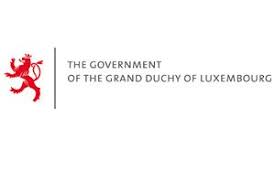Bosnia and Herzegovina has a unique public financial system that follows the constitutional framework and division of competencies. The general government sector includes institutions of BiH, entity governments (Federation of Bosnia and Herzegovina, and Republika Srpska), Brčko District, cantonal and city/municipal authorities. Public financial management (PFM) reform efforts in BiH are nested under the public administration reform (PAR) framework, and several PFM reform initiatives are taking place in the context of EU membership aspirations. Due to this unique system of public finance, the PEFA of BiH is in fact "Four in one"- four PEFA assesments were conducted in parallel, but published as one document ( "PEFA 2023 Bosnia and Herzegovina " ).
Before PEFA 2022, Bosnia and Herzegovina had only one previous PEFA assessment, which was conducted in 2013 by the World Bank. It covered the period from 2010 to 2012, during which the country was in the process of recovering from the global financial crisis. PEFA 2013 was thus outdated and not helpful for the Government to improve their PFM system nor for donors to assess their support for the country in the post-COVID, post-economic, and post-energy crisis context.
In 2022, the EU decided to finance a new PEFA for BiH. In practice, this was done as a part of the EU-funded technical assistance project "Public Investment Management for Results: Public Investment Planning and Management System - PIPMS".
The assessment was completed by a team of international and local PFM consultants under the technical assistance project funded and managed by the EU Delegation in BiH. Ministries of Finance of all four levels of government involved in the assessment, together with other relevant stakeholders, were the main beneficiaries of the assessment. The oversight team was composed of representatives of the Ministries of Finance, EUD, World Bank, IMF, SECO, and UNDP.
The consolidated assessment was completed in 2023, awarded PEFA Checks for all four government units and published in English and the Bosnian languages (click on the images to access the assessments).
According to the PEFA 2023 assessment, the key strengths of the public finance management system in Bosnia and Herzegovina are (i) expenditure management, (ii) budget preparation processes, (iii) debt management, and (iv) external audit. The areas identified as requiring continued reforms and further improvements in BiH are (i) strategic targeting of public budgets (ii) result-based (performance-driven) allocation of public funds, (iii) parliamentary scrutiny of the budget and fiscal strategy, and (iv) management of fiscal risks and public investment management.
Click on the images below for the summaries and detailed scores made available on PEFA website for all four administrative units:
It is expected that the results of the PEFA assessment will be taken into account when current PFM strategies are revised (in 2024). In addition, PEFA results are foreseen to contribute to the high-level PFM policy dialogue between BiH, EU, and IFIs that is scheduled to start in 2024.
The PEFA assessment process in Bosnia and Herzegovina, like in many other countries, provides valuable insights and lessons. In general, the PEFA assessment serves as a valuable tool for diagnosing PFM challenges, identifying reform priorities, and fostering dialogue and collaboration among stakeholders to improve public financial management systems.
Specifically, two important findings arise from this process:
- The PEFA assessment is usually conducted at intervals of 4 to 5 years. To ensure continuous monitoring of the state of public finances in Bosnia and Herzegovina, the next one should be conducted in 2026 or 2027. Considering the capacities developed and improved during the preparation of this report, the next assessment should involve the Ministry of Finance as assessor in the process.
- All four government levels of BIH nominated a focal point for the assessment to facilitate communication within the institutions and to facilitate data access. In such conditions, when four processes are taking place in parallel, the data collection process is quite intensive. Therefore, timely communication with partners is extremely important to avoid significant delays and ensure a synchronized working pace and effectiveness.
According to the PEFA assessment, the areas identified as requiring continued reforms and further improvements in BiH are the strategic targeting of public budgets, result-based (performance-driven) allocation of public funds, parliamentary scrutiny of the budget and fiscal strategy, and management of fiscal risks and public investment management.
It is expected that the assessment findings will be included in the existing Strategy for the Improvement of Public Finance Management for the four levels of government and will represent a control point for the implementation of the strategy. It is expected that the dialogue related to the findings of the PEFA assessment will influence the priorities of governments in the area of public financial management and the preparation of future reform projects.
The final PEFA 2023 Assessment for Bosnia and Herzegovina was officially launched to the public in January 2024.
"PEFA is at the center of the European Union's financial cooperation with partner countries. It contributes to the progress of public financial management reforms and is part of the EU's "Collect more - Spend better" approach, thus improving efficient and fair revenue collection and efficient and transparent spending" stated Karel Lizerot, Head of Section for Justice and Home Affairs, Migration and Public Administration Reform of the Delegation of the European Union to BiH in the PEFA dissemination event on January 24, 2024.







